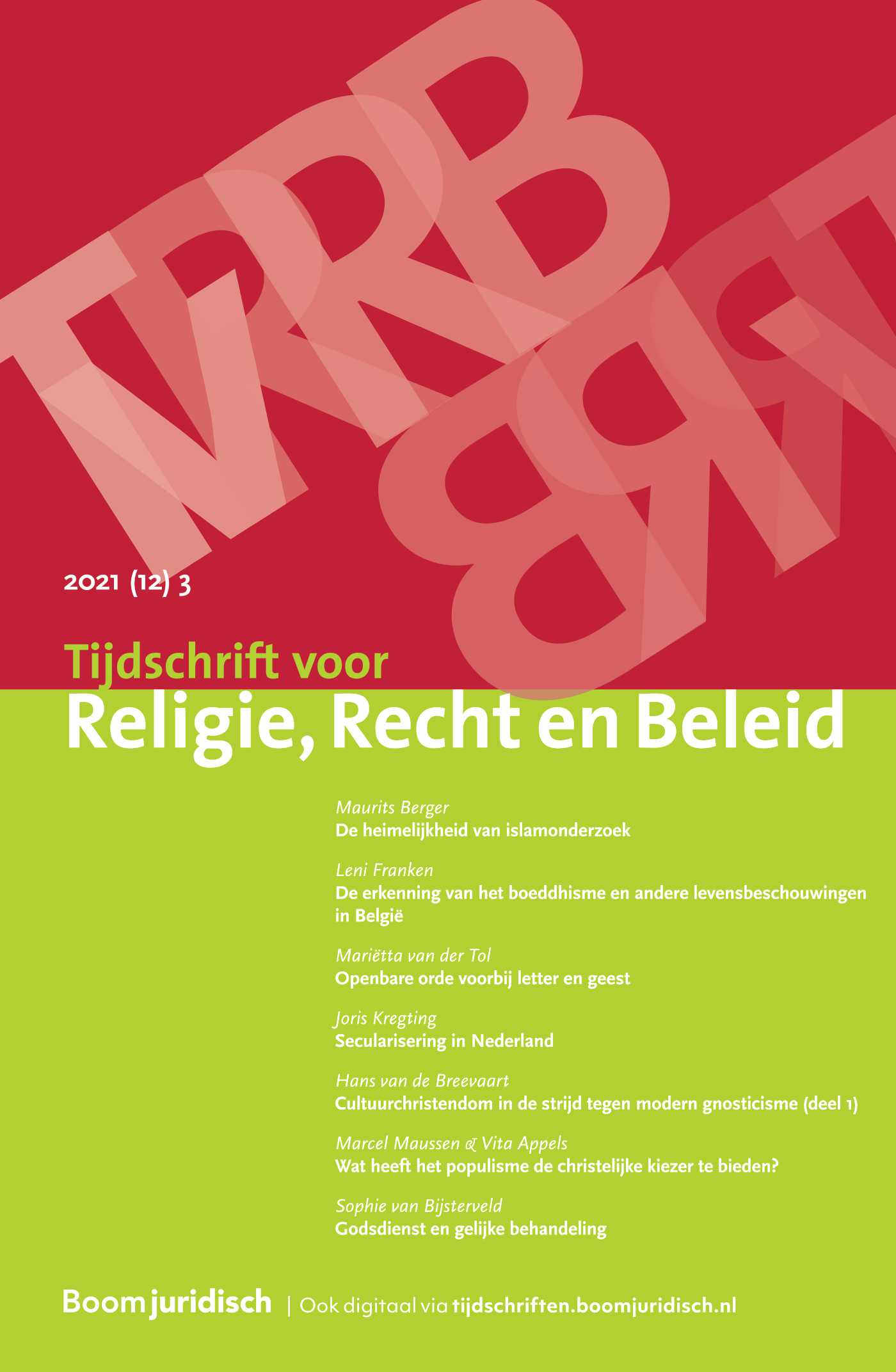|
This contribution discusses two forms in which spiritual care in the Netherlands can be organized: in terms of a (church) office which reflects the current form, or as liberal profession which is a form to be conceivably pursued as an alternative proper to the sociocultural and institutional developments that this text indicates. The historical Dutch context of pillarization is tributary to a form of spiritual care that seems less apt to deal with the challenges ahead. The conditions and requirements of a liberal model are presented, but also put into perspective of the limited opportunities of the professional association of spiritual care to manoeuvre in politics and policies. |


Tijdschrift voor Religie, Recht en Beleid
Meer op het gebied van Algemeen
Over dit tijdschriftMeld u zich hier aan voor de attendering op dit tijdschrift zodat u direct een mail ontvangt als er een nieuw digitaal nummer is verschenen en u de artikelen online kunt lezen.
| Redactioneel |
|
| Auteurs | Dr. Ben Koolen |
| Auteursinformatie |
| Artikel |
|
| Trefwoorden | office, liberal profession, spiritual care |
| Auteurs | Prof. dr. Hans Schilderman |
| SamenvattingAuteursinformatie |
| Artikel |
|
| Trefwoorden | John Rawls, faith, reason, neo-orthodoxy |
| Auteurs | Mr. dr. Richard Steenvoorde |
| SamenvattingAuteursinformatie |
|
The philosophy of John Rawls (1921-2002) has had a profound influence on political and legal thinking. From the beginning people have wrestled with the place of religion in his works. Rawls own religious ideas remained hidden territory until 2009, when two documents by Rawls on religion were posthumously published. This article explores how Rawls’ early theological ideas can be recognised in his later works, specifically with regard to faith and reason, the meaning of community, and the question of merit in justice. It concludes that, despite his loss of faith, Rawls remained deeply influenced by the neo-orthodox Christianity of his student days. |
| Artikel |
|
| Trefwoorden | freedom of education, denominational education, Roman Catholic education |
| Auteurs | Mr. René Guldenmund |
| SamenvattingAuteursinformatie |
|
The Netherlands has a unique educational system, based on freedom of education, that provides for public and denominational education both financed on equal terms by the state. Only schools belonging to formally recognized denominations are qualified for public finance. School education is one of the few policy fields in The Netherlands where a formal recognition of faith actually occurs. |

 Aflevering 3
Aflevering 3